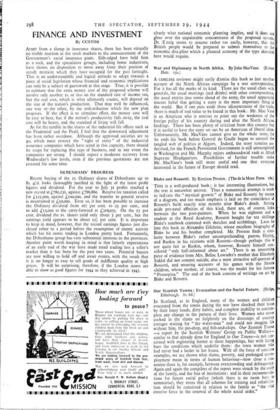Our Scottish Towns : Evacuation and the Social Future. (Hodge,
Edinburgh. Is. 6d.)
IN Scotland, as in England, many of the women and children evacuated from the- towns during the war have shocked their hosts by their lousy heads, dirty habits, and complete inability to contem- plate any change in the pattern of their lives. Women who never cooked in the slums sat helplessly on the doorsteps of country cottages waiting for, " the, wafer-man" and could not imagine life without him, the pie-shop, and fish-and-chips. Our Scottish Towns —a report by the Scottish Womens' Group on Public Welfare— similar to that already done for England in Our Towns—is not con- cerned with registering horror at these happenings, but with laying bare the conditions which underlie them: the town woman who had never had a larder in her house. With all the force of concrete examples, we are shown what slums, poverty, and prolonged unem- ployment mean in terms of human behaviour—how close a con- nexion there is, for example, between overcrowding and delinquency. Again and again the compilers of the report were struck by the unity' of the family, and the fear of institutions : and in their recommenda- tions for future social policy (which there is no room here to summarise), they stress that all schemes for training and rehabilita- tion should be conceived in relation to the family as "the vital creative force in the renewal of the whole social order."


























 Previous page
Previous page